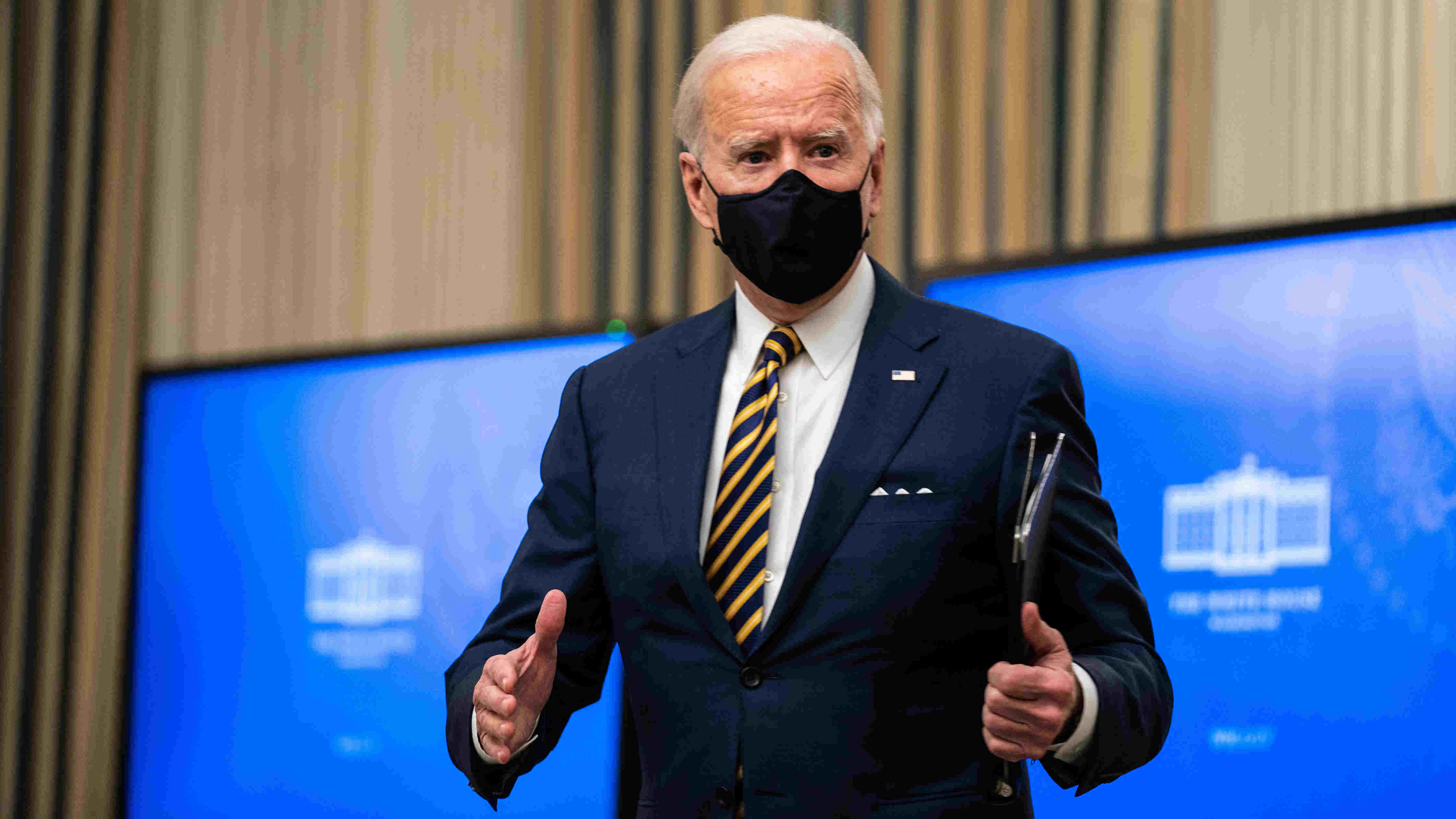President Joe Biden, under pressure to aggressively address the global coronavirus vaccine shortage, will announce that his administration will buy 500 million doses of the Pfizer-BioNTech vaccine and donate them among about 100 countries over the next year, according to people familiar with the plan.
The White House reached the deal just in time for Biden’s eight-day European trip, which is his first opportunity to reassert the US as a world leader and restore relations that were badly frayed by President Donald J. Trump.
“We have to end Covid-19, not just at home, which we’re doing, but everywhere,” Biden told American troops after landing at RAF Mildenhall in Suffolk, England. “There’s no wall high enough to keep us safe from this pandemic or the next biological threat we face, and there will be others. It requires coordinated multilateral action.”
People familiar with the Pfizer deal said the US would pay for the doses at a “not for profit” price. The first 200 million doses will be distributed by the end of this year, followed by 300 million by next June, they said. The doses will be distributed through Covax, the international vaccine-sharing initiative.
Biden is in Europe for a week to attend the Nato and Group of 7 summits and to meet President Vladimir V. Putin of Russia in Geneva. He is likely to use the trip to call on other nations to step up vaccine distribution.
In a statement on Wednesday, Jeffrey D. Zients, the White House official in charge of devising a global vaccination strategy, said Biden would “rally the world’s democracies around solving this crisis globally, with America leading the way to create the arsenal of vaccines that will be critical in our global fight against Covid-19.”
The White House is trying to spotlight its success in fighting the pandemic — particularly its vaccination campaign — and use that success as a diplomatic tool, especially as China and Russia seek to do the same. Biden has been insistent that, unlike China and Russia, which have been sharing their vaccines with dozens of countries, the US will not seek to extract promises from countries receiving American-made vaccines.
The 500 million doses still fall far short of the 11 billion the WHO estimates are needed to vaccinate the world, but significantly exceed what the US has committed to share so far. Other nations have been pleading with the US to give up some of its abundant vaccine supplies. Less than 1 per cent of people are fully vaccinated in a number of African countries, compared with 42 per cent in the US and the UK.
Advocates for global health welcomed the news, but reiterated their stance that it is not enough for the US to simply give vaccine away. They say the Biden administration must create the conditions for other countries to manufacture vaccines on their own, including transferring technology to make the doses.
“The world needs urgent new manufacturing to produce billions more doses within a year, not just commitments to buy the planned inadequate supply,” Peter Maybarduk, the director of Public Citizen’s Access to Medicines program, said in a statement.
He added, “We have yet to see a plan from the US government or the G7 of the needed ambition or urgency to make billions more doses and end the pandemic.”
The deal with Pfizer has the potential to open the door to similar agreements with other vaccine manufacturers, including Moderna, whose vaccine was developed with American tax dollars — unlike Pfizer’s. In addition, the Biden administration has brokered a deal in which Merck will help produce Johnson & Johnson’s vaccine, and those doses might be available for overseas use.
The US has already contracted to buy 300 million doses of the Pfizer-BioNTech vaccine, which requires two shots, for distribution in the US; the 500 million doses are
in addition to that.
Neither Pfizer nor administration officials would say what the company is charging the government for the doses. Pfizer is also offering the Biden administration an option to buy another 200 million doses at cost to be donated overseas.
New York Times News Service










